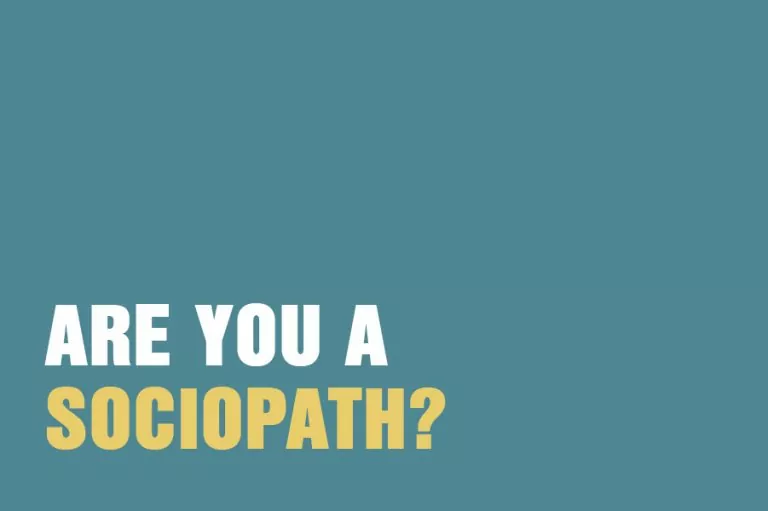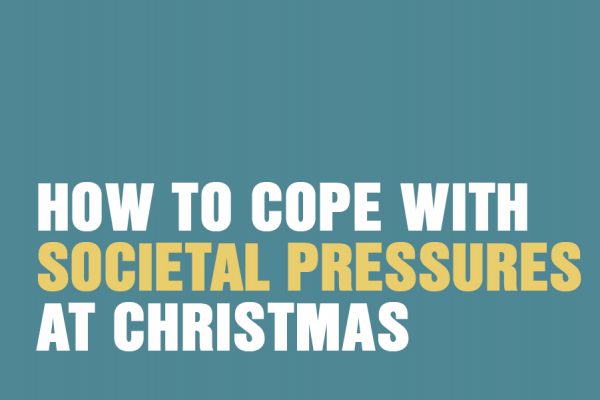Do you find it hard to tune in to the emotions of others? Have you been told you are insensitive? If so, you might have been accused of being a sociopath. The words sociopath and psychopath are bandied about quite frequently in everyday life. If someone displays any sign of cruelty to others in conjunction with social isolation or not caring what other people think, their peers might stroke their collective chin and say, ‘Hm, psychopath?’ If a person seems able to easily charm others, but cannot form lasting relationships with them because they seem heartless and unable to actually care about those other people, then the label sociopath is reached for.
But these terms are used very rarely in psychology and psychiatry. Neither psychopath nor sociopath is listed in the diagnostic bible that doctors use when diagnosing psychological illness. This is because they are not disorders in themselves but are seen as traits when diagnosing other conditions such as Antisocial Personality Disorder. This means that there are no statistics on how many people are psychopathic or sociopathic, but it is estimated to be about four per cent of the population.
So the answer to the question in the title of this blog is almost definitely ‘no’. However you might have sociopathic traits:
What is a sociopath?
The defining characteristics of a sociopathic personality are being, on the surface, very clever, fun and charming, but that quite early into an acquaintanceship or a relationship it becomes evident that there is casual, almost constant deception and manipulation. So the charm is the first thing to be noticed, and sociopaths can attract a lot of people to them, but they do not have the ability to make friends or maintain meaningful relationships. Typically sociopaths are very skilled at lying and cheating, and have no capacity for guilt or remorse.
The identifying traits of a sociopath are:
- Superficial charm and good intelligence
- Having a lot of confidence and being the life and soul of any party
- Being bold and self-assured
- Rarely feeling guilt or shame
- Showing no remorse
- Constant lying
- An inflated sense of their own superiority
- A tendency to exaggerate,
- Being persistently unreliable
- Being impulsive, aggressive and reckless
- Failure to comply with social norms
- Absence of delusions and other signs of irrational thinking
- Absence of nervousness or anxiety
- Lack of remorse and shame
- Antisocial behaviour for no apparent reason
- Poor judgement and failure to learn by experience
- Egocentricity or inflated sense of own self worth
- Not able to grasp the concept of, or develop a capacity for, love
- A lack of reactions to the feelings of others
- Impulsivity or failure to plan ahead
- Not having any empathy for others
- Not able to read the emotions of others
What makes a Sociopath?
According to recent research by the American Psychiatric Association, approximately 70 per cent of sociopaths come from homes in which the father was absent. Studies have also shown that if a child is not shown affection and that no kind of emotional closeness was ever expressed by the parents, it can generate dysfunction for the child that can manifest itself in sociopathic tendencies in later life. So there are environmental factors but it seems that sociopathic behaviour has a wide spectrum of causes and explanations, and there is also a possibility of a genetic factor and that if one parent has sociopathic traits the odds are increased of their children developing them. Neuroscience researchers have also found that many people diagnosed with Antisocial Personality Disorder have neurological abnormalities in the frontal lobe of the brain. This is the section of the brain that is the centre for judgement and self-control.
What can you do if you have some sociopathic traits?
Read together the list above is quite an unattractive collection of qualities, but the good news is that these traits can be changed. If, for example, you have been told that you lack empathy and find other people and their moods completely mystifying, then you can adjust this behaviour. Emotional intelligence can be learned.
How to boost your empathy, social awareness and capacity for love:
Get fluent in the language of emotions: to be emotionally intelligent you have to be able to recognise and name your emotions, and then to understand what is going on. So, for example, if you feel sad, you can identify it and then continue to define it more and say something like ‘Sadness is a feeling of loss of something that matters to me, and so feeling sad helps me to identify what I do care about and what is important to me as a person.’
Name your emotions. Once you understand emotions better, it is important to name what you are feeling when you are feeling it.
Don’t always use the first person. Instead of saying ‘I am so angry right now,’ think to yourself, ‘Anger is one of my emotions’. This distances you from it and helps you to understand that emotions are a passing thing, and a thing that contains information that can be helpful to you.
Sit with your emotions. Let yourself be sad or angry or frustrated for a few moments while you count to ten or just breathe… then…
Feel it in your body. Are your muscles tight? Do you have any sensations in your head or chest? This will help to centre you so that you can better understand what is going on with you and how to process that emotion.
Get rid of the idea that some emotions are bad. However negative it is to feel fear or anger can seem, it is actually a helpful thing as it can lead you to make yourself safe or to right a wrong and seek justice. But if you stay with the negative and think some emotions are bad, you will push it away or push it down where it can lurk and cause you problems later.
Seek the patterns. Neuroscience has taught us that the brain will follow existing neural pathways. For example, if you always tend to bottle up your emotions, and this is something you learned early in life because one of your parents also did this, then this is an established pattern of behaviour. But if you bring it to awareness you can change the course of this and respond to the here and now rather than the unconscious learned behaviour.
If you feel you would like a safe space in which to open up about your anti-social feelings, and improve your emotional intelligence and ability to connect others, therapy could be a very helpful next step. Just call 020 8673 4545 or email [email protected] for a confidential appointment.







